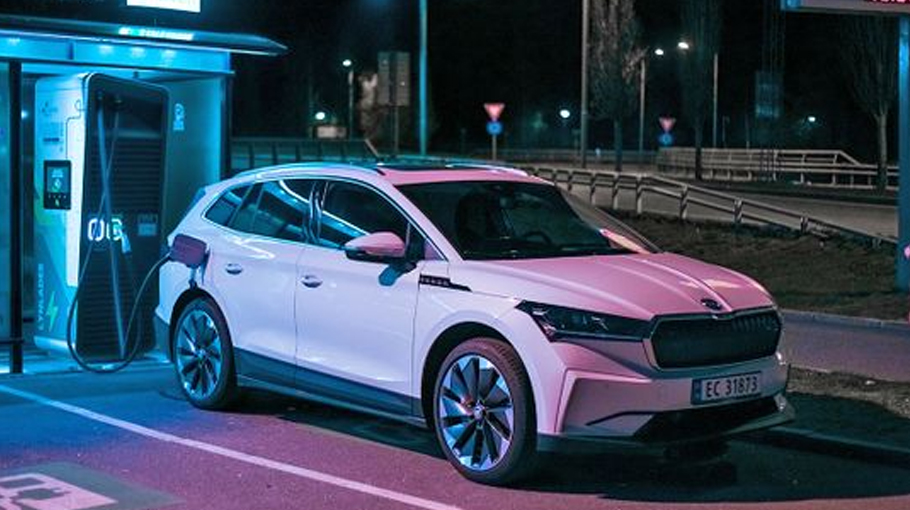This is where Europe’s electric revolution is happening
How Frongner Park embodies Norway's love for electric vehicles

Frongner Park is close to the centre of downtown Oslo and, for many residents of the capital, is a perfect place to stroll and admire the many sculptures that adorn its tree-lined pathways and wide rose gardens.
On a recent early Sunday, this correspondent strolled and admired the park, its incredible carvings and statues, and rubbed the foot of Sinnatagen, an angry toddler caught in a foot-stomping pose frozen in bronze and time and something of a symbol for times past. Is he railing against some childhood mishap? Furious at not getting his way? Or symbolic perhaps of the concept that all emotions — anger or love — are fleeting? Change is inevitable, and wasting efforts trying to fight what will unfold, is wasted energy.
But Norway is a nation where little goes to waste. Its 5.4 million residents enjoy one of the highest standards of living in the world, one where the average monthly wage is NKR54,360 (Dh18,479) and where personal tax rates are high too. The average Norwegian will lose 27.6 per cent of their pay to direct taxes, another 15 per cent in indirect taxes and more on consumer taxes, especially on fossil fuels. The average price for a litre in June so far has been NKR22.18 (Dh7.55) — and that in a nation that produces more than 1.8 million barrels of oil per day.
It's that high-earnings, high-tax mix, combined with determined government policies to make the nation carbon neutral by 2030, that drives Norwegians' love affair with electric vehicles.
This year, nine out of 10 new vehicles on the roads will be electric or hybrid. Picking up a vehicle at Oslo’s Torp airport, the choice was either all-electric or hybrid. Even then, filling up a small hybrid model cost your correspondent Dh495. Next time, I’ll be opting for an all-electric hire car.
While Norway isn’t a member of the European Union, it is a member of the larger and EU-affiliated European Economic Area that includes Iceland and Liechtenstein.
No other option
Simply put, come 2025, there won’t be any other option. Norway is ending the sale of diesel- and petrol-powered vehicles in 2025 — a full decade ahead of the EU. Norway leads the world when it comes to electric vehicles (EVs). They already account for more than 20 per cent of all passenger vehicles on the country’s roads. Taking hybrids out of the mix, pure EVs account for 84 per cent of sales.
Solberg Thorsen, the CEO of Norway’s Road Federation, said in early June that his country will be “the first to kill the combustion car”.
For more than 120 years, Norwegians honed their love of vehicles driven by petrol and diesel, but a generous government package of tax and financial reforms has now meant that the age of the internal combustion engine is pretty much over now in this European nation. The country’s switch has been driven by generous tax incentives, including the exemption of EVs from a registration tax, VAT and motor fuel taxes, as well as at least a 50 per cent reduction in road taxes, and ferry and parking fees. Simply put, it just made financial sense to switch to electric. Trouble is, once those high levels of subsidies are in place, how does the government then roll those back and build a sustainable tax system for vehicles?
No other country in the world has gone as far as Norway
in the decarbonisation of its transport
sector. It has electrified a third
of its domestic ferries and is a
pioneer in electric aviation
Given the nation’s geography – its coastline is nearly 29,000kms long including long and deep fjords, many small communities are isolated, and distances between sparsely populated centres are great — and given its harsh winter climate, roads have to be of the highest standard and be well-maintained. Even providing a reliable large-scale public transport network is difficult — and expensive. And by encouraging the switch to EVs, the government also had to ensure that there were ample charging points in every corner of the country.
Rise of Electric Vehicles
According to the Organisation for Economic Cooperation and Development (OECD), no other country in the world has gone as far as Norway in the decarbonisation of its transport sector, it has electrified a third of its domestic ferries and is a pioneer in electric aviation.
Battery-electric vehicles were also exempted from value-added and import taxes, which are traditionally high on cars in Norway.
The Norwegian Electric Vehicle Association estimates there is now approximately one fast charger for every 100 electric vehicles in Norway - enough to prevent range anxiety among EV owners.
If there’s a fault in Norway’s strategy so far, it’s that there are myriad different apps and platforms needed by EV owners to use the charging stations, and registrations take time. The whole process needs — and will soon be — simplified into a unitary app and platform. The Norwegian Parliament had recently decided that all charging stations must include a card payment option from this year, a good starting point in removing some of drivers’ complaints.
Mick O’Reilly is Foreign Correspondent at Gulf News. Source: Gulf News



